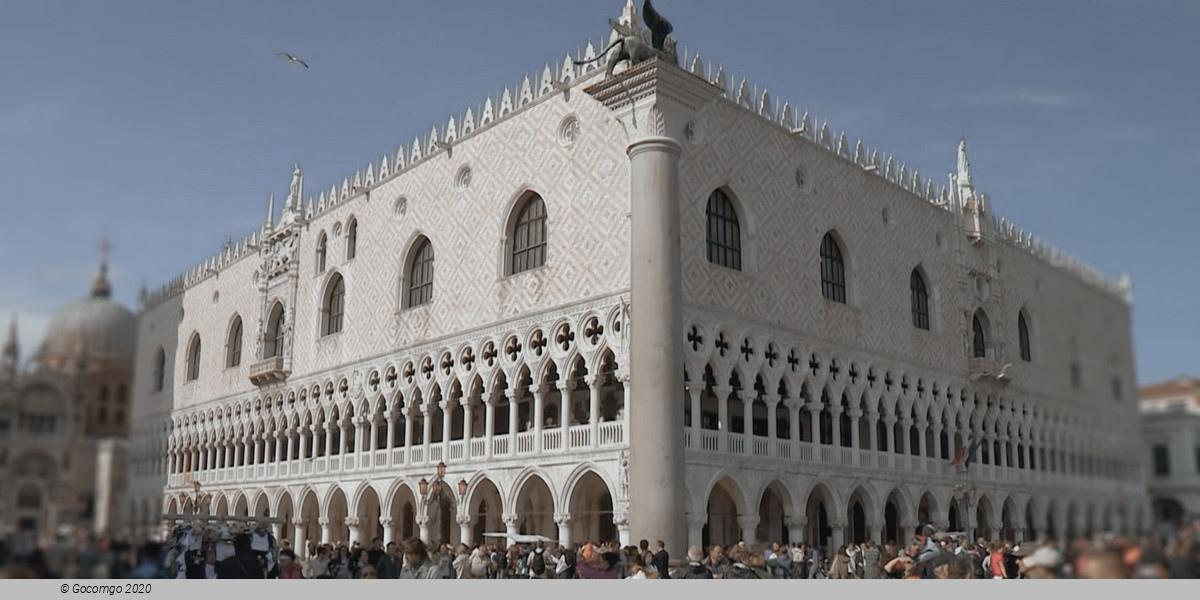Doge's Palace (Venice, Italy)
Doge's Palace

The Doge's Palace (Italian: Palazzo Ducale; Venetian: Pałaso Dogal) is a palace built in Venetian Gothic style, and one of the main landmarks of the city of Venice in northern Italy. The palace was the residence of the Doge of Venice, the supreme authority of the former Republic. It was built in 1340 and extended and modified in the following centuries.
The oldest part of the palace is the wing overlooking the lagoon, the corners of which are decorated with 14th-century sculptures, thought to be by Filippo Calendario and various Lombard artists such as Matteo Raverti and Antonio Bregno. The ground floor arcade and the loggia above are decorated with 14th- and 15th-century capitals, some of which were replaced with copies during the 19th century.
In 1438–1442, Giovanni Bon and Bartolomeo Bon built and adorned the Porta della Carta, which served as the ceremonial entrance to the building. The name of the gateway probably derives either from the fact that this was the area where public scribes set up their desks, or from the nearby location of the cartabum, the archives of state documents. Flanked by Gothic pinnacles, with two figures of the Cardinal Virtues per side, the gateway is crowned by a bust of Mark the Evangelist over which rises a statue of Justice with her traditional symbols of sword and scales. In the space above the cornice, there is a sculptural portrait of the Doge Francesco Foscari kneeling before the Lion of Saint Mark. This is, however, a 19th-century work by Luigi Ferrari, created to replace the original destroyed in 1797.
Today, the public entrance to the Doge's Palace is via the Porta del Frumento, on the waterfront side of the building.
Sometimes concerts are held at the Doge's Palace.


